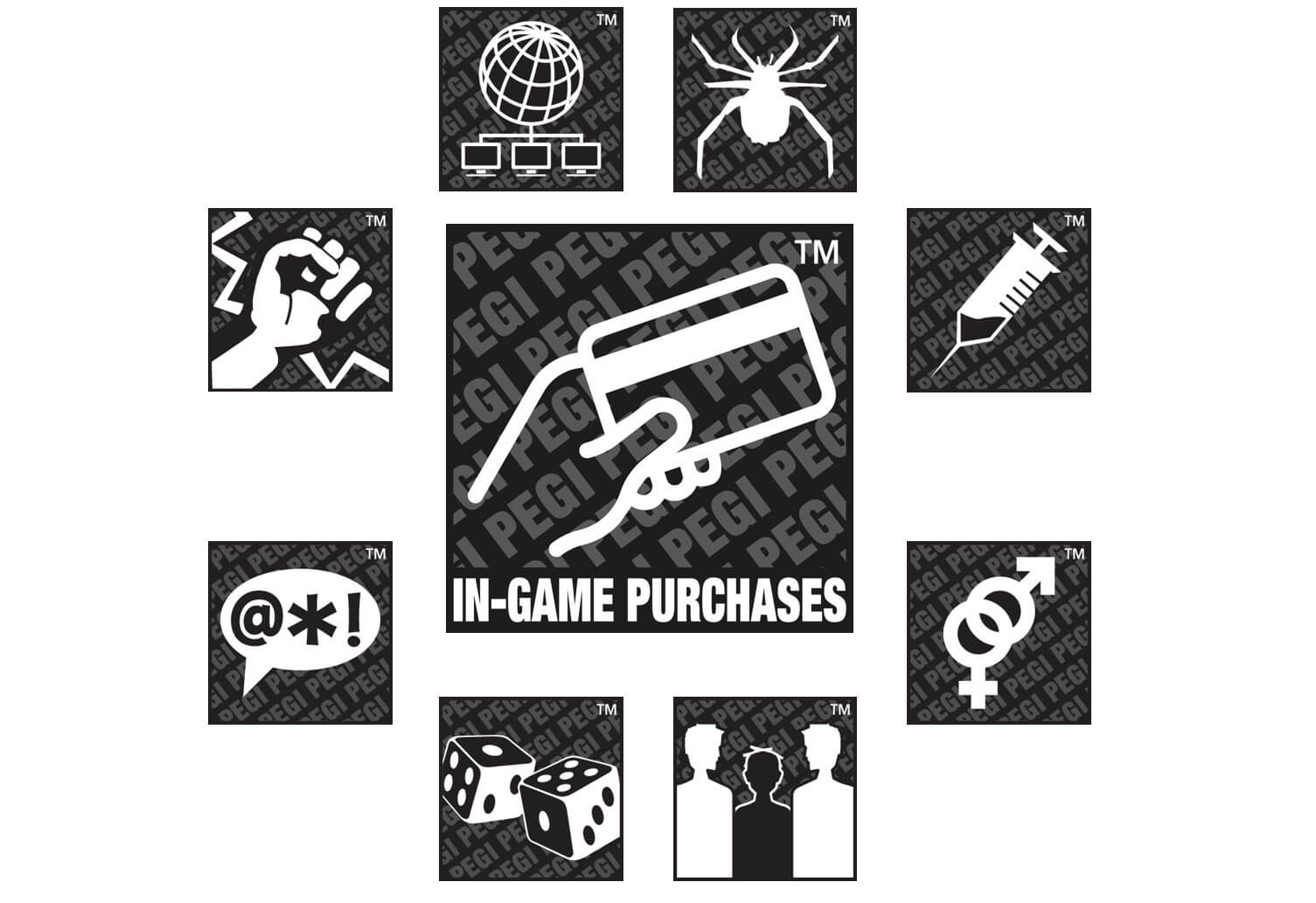Why it matters: In-game purchases and pay-to-win mentality have become a bane of gaming. Publishers such as EA got in the habit of delivering the bare basics of the game mechanics and immediately introduced expanded functionality and a gaming edge to those willing to pay extra. Games ended up being a pale shadow of what they should be, until you broke out the credit card for the extras.
The Pan-European Game Information board (PEGI), the European counterpart to the ESRB, is introducing a new label to flag games which contain in-game purchases, starting today. The labels, dubbed "content descriptors" by PEGI, warn consumers about the type of dangers which games pose - whether it involves sex, drugs, language, violence, discrimination or a simple always-on internet connection.
The new labeling aims to help consumers, and parents in particular, in choosing titles while being made aware of what the game entices.
The new content descriptor for in-game purchases will be used on the packaging of all games which contain purchasable content such as DLC or in-game items, in Europe. While the main motivation is to give consumers information on the possibility of hidden costs in games, this labeling follows much heated debate on whether lootboxes and crates are to be considered a form of gambling, and therefore, requiring the protection of minors.
PEGI based its new label on research carried out by Ipsos, which found 2 in 5 parents in Europe say their kids spend money in-game, and that in four major European markets (UK, France, Spain and Germany), totaling a population of about 250 million, around 80 percent of parents have an understanding with their children about online spending. However, in some countries, legislation has already been passed that classifies items such as lootboxes as gambling, rather than in-game purchases.
The Netherlands and Belgium have recently imposed restrictions on games such as Overwatch, CS:GO and FIFA 18, whereby developers must remove the paid content as it is considered a form of gambling. The ESRB already introduced similar measures to avoid the loot box controversy in the United States, back in February.
